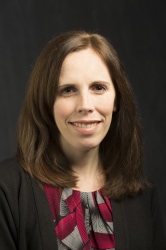Part 1 of this series highlighted the importance of connecting learning to the real world. The post described four key skills essential for student success in the 21st century: communication, collaboration, creativity, and critical thinking. This continuation delves into two classroom approaches for real-world learning: project-based learning (PBL) and experiential learning. It features resources created in collaboration with the North American Division Office of Education that are available for free on the Adventist Learning Community website.
Project-Based Learning: PBL engages students in authentic, hands-on projects that address real challenges, including problems in their schools, communities, or beyond. By immersing themselves in these projects, students develop essential skills and gain a deeper understanding of the subject matter. Students begin with a driving question or open-ended task and collaboratively engage in a continuous process of inquiry to develop a solution to the problem or create a tangible product. Upon completion, they present their solution or product to a real audience, such as their school or community. Service learning can be incorporated into PBL by designing projects that address community needs and impact the lives of others.
Here are some Adventist PBL resources to help you get started:
- Adventist Teacher Connect: Free PBL projects aligned to the Adventist worldview; plus, free teacher guides and learning modules.
- Project-based Learning in the PreK-12 Classroom (free ALC course)
Experiential Learning: Students are encouraged to explore, experiment, and apply their knowledge in practical contexts and real situations. Experiential learning can take many forms, including field trips, experiments, role-playing exercises, and simulations. Through these hands-on experiences, students can develop problem-solving, critical thinking, and decision-making skills. Students then reflect on their experiences, analyzing what they learned and how it applies to broader concepts or practical situations.
Here are some free Adventist courses and resources to use in your classroom:
- STEM Tuesdays: STEM lessons to watch and experiments to conduct with your class. Videos and lesson plans for elementary and high school are included.
- Courses for teachers:
- Using Design Thinking in K–12 Classrooms
- Innovation 101
- Integrating STEM Across the Curriculum
- Introduction to Adventist Robotics
- Recorded webinars:
- Fostering Innovation in the PreK–12 Classroom
- STEM Tips and STEM Kits
- Taking Learning Outdoors
- Teaching with Ozobots (coding)
- Teaching with Hummingbird (coding)
- Teaching with Arduino (coding)
Real-world learning approaches like project-based learning and experiential learning can enhance students’ understanding and application of content matter. These learning methods can foster the development of essential 21st century skills while making learning relevant and engaging.
Take time to explore the PBL and STEM resources that have been developed specifically for Adventist teachers, and stay tuned for the next blog in this series on real-world learning, which will explore innovative ways and tools to create real-world connections using technology.

